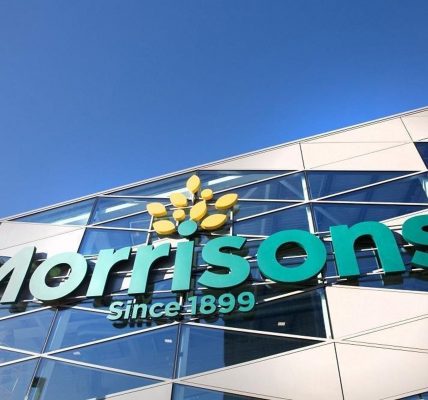Morrisons shareholders rebel against directors' pay package
Morrisons has been dealt a bloody nose by its shareholders after more than 70 per cent voted against the directors’ remuneration package at the firm’s AGM in Bradford today.
The vote is non-binding so the remuneration package will go through, but anything under an 80 per cent vote for the remuneration means the firm has to re-engage with shareholders and tell them why the directors deserve it.
In its defence, Morrisons said the Remuneration Committee believed that the firm had performed “exceptionally well for the nation” during the first year of Covid with its executives “widely recognised for their leadership, clarity, decisiveness, compassion and speed of both decision making and execution”.
“Almost overnight, the entire business was effectively re-positioned to feed the nation and to make sure no-one was left behind,” the firm said.
Ahead of the AGM, several investor advisory groups had recommended shareholders vote against the report because the way chief executive David Potts’ pay package was calculated meant it was unaffected by a Covid-19-driven profits slump.
After the meeting, Morrisons said: “We note the very significant majority vote against the Directors’ Remuneration Report.
“In consultations with shareholders ahead of the AGM, the Remuneration Committee endeavored to explain the full context around its decision to apply selective discretion on some aspects of the executive directors’ remuneration, in particular adjusting for direct Covid costs.
“An adjusted profit number was also used to calculate the final ordinary dividend payment of 5.11p which, together with the interim dividend and the deferred special dividend from the prior year, took the total dividends for shareholders for the year to 11.15p.”
The firm said that the directors’ key decisions included immediate payment terms offered to around 3,000 small suppliers and a 10 per cent Morrisons discount for NHS workers, teachers and blue light workers. A 5 per cent Morrisons discount was also made available to the group’s British farmer suppliers.
Morrisons delivered enhanced pay guarantees for sick, self-isolating and affected colleagues, plus greater flexibility around shifts and annual leave. A hardship fund was set up to support colleagues in financial difficulty due to the crisis.
It also set up a Doorstep Delivery telephone service for the elderly, isolating and shielding and delivered a five-fold increase of dotcom capacity to help vulnerable and isolating customers.
Other schemes included a bulk delivery service for local councils, care homes and charities, and £15m of food was donated to re-stock Britain’s food banks.
Morrisons repaid the Government its £230m business rates waiver.
In addition, it said that all Morrisons colleagues had their bonus significantly enhanced – the average bonus was trebled and paid early – to recognise their extraordinary commitment, innovation, selflessness and hard work to feed the nation in a time of national crisis.
“In the view of the committee, the executives demonstrated those same qualities and in doing so helped to develop a more trusted, differentiated and resilient business which is in the long-term interests of shareholders,” the firm said.
The committee also noted that Mr Potts waived his salary increase for the sixth year running.
“In these circumstances, the Remuneration Committee believed that it was appropriate to apply some discretion to the remuneration of the senior executives,” the firm said.
“It is a matter of sincere regret to the committee that it clearly has not been able to convince a majority of shareholders – or the proxy voting agencies – that this was the right course of action.
“The committee looks forward to re-engaging with shareholders, listening to their views, and once again making the case for why discretion was used in a genuinely exceptional year which produced a genuinely exceptional performance from the executive leadership.”
In better news for Mr Potts, he was overwhelmingly backed by shareholders to stay in the job with 99.6 per cent of shareholders voting to re-elect him.










